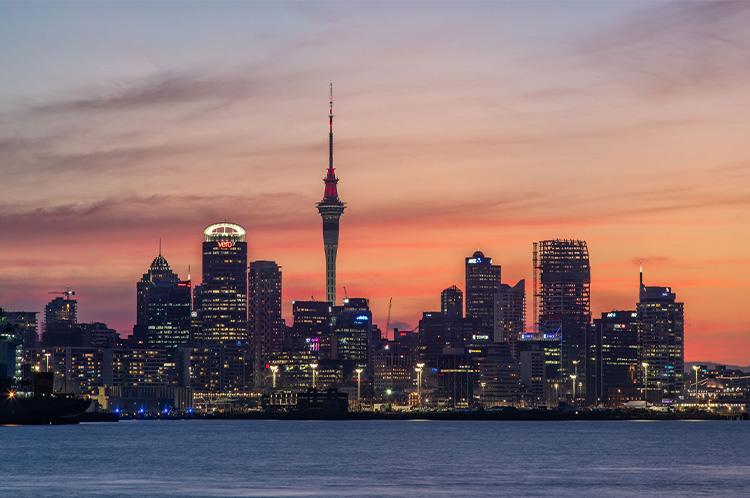September 19, 2019 Reading Time: 3 minutes
 Reading Time: 3 min read
Reading Time: 3 min read
Image Credits: Chris Gin/flickr
*Simon Draper
The Black Caps have been slogging it out in Sri Lanka in recent weeks—and receiving some characteristically warm Sri Lankan hospitality, in case you missed the pictures of Kane Williamson’s fan-supplied birthday cakes. Cricket is certainly one of the things that springs to mind for many New Zealanders when they think about Sri Lanka. As does Dilmah tea—one of Sri Lanka’s most famous tea brands. Thousands of Kiwis have enjoyed holidays to Sri Lanka; in fact, Sri Lanka recently topped Lonely Planet’s 2019 list of top international destinations.1
On the other hand, we know Sri Lanka has had its challenges. The 26-year civil war resulted in some 100,000 civilians losing their lives.2 Or more recently, the Easter Sunday terror attacks in Colombo tragically killed 253 people and wounded many more.3
Whatever you recall about Sri Lanka, it is a relationship that New Zealand has good reason to invest effort in.
Last week, the Asia New Zealand Foundation hosted two guests from Sri Lanka—our newly-appointed honorary adviser Senaka Silva, who is also New Zealand’s Honorary Consul in Sri Lanka, and economist Dr. Ganeshan Wignaraja, Executive Director of the Lakshman Kadirgamar Institute of International Relations and Strategic Studies (LKI). Their visit offered insights into the way Sri Lanka sees New Zealand and the similarities between us.
Sri Lanka and New Zealand are both multi-ethnic island nations. They are both democratic Commonwealth countries with much larger neighbours—Sri Lanka has nearly 22 million people to India’s 1.3 billion. Both nations are also navigating economic change and shifting power structures in Asia. The two countries are grappling with the aftermath of horrific hate attacks and figuring out how to rebuild trust within communities.
As island economies, we must be outward-looking if we are to connect our goods and people with other markets. In the case of Sri Lanka, nestled in the heart of the Indian Ocean, it sees itself as a natural trading hub, connecting India, China and the east coast of Africa.
Our Sri Lankan guests described feeling very comfortable in New Zealand—another democratic English-speaking country—and they back the All Blacks as if they were their own. Small countries have to back each other, whether in sport or elsewhere on the international stage. The members of New Zealand’s Sri Lankan diaspora—a highly skilled and diverse community—do an amazing service in growing connections between the two countries.
The New Zealand Government’s decision to open a High Commission in Sri Lanka (likely to happen sometime next year) will, no doubt, further boost contact between our people and lead to deepening connections between our two countries.4
In conversations last week, we learned about the challenges of rebuilding the private and public sector after recurrent upheaval from war, disasters and terrorism. Sri Lanka is a nation that has weathered many storms, but much of its economic growth has been driven by loans, making it vulnerable to shocks—including a drop in tourism numbers.
International news coverage has highlighted billions of dollars of Chinese investment in Sri Lankan infrastructure. The Hambantota International Port—leased to China for 99 years in 2017—has been a focal point for accusations that China has put Sri Lanka into a debt trap.5
However, what we heard last week was that Sri Lanka owes more to Japan, the World Bank and Asian Development Bank than it does to China. But the debt-trap story is also about sovereignty and maintaining control of critical infrastructure. For Sri Lanka, this story is ongoing.
New Zealand’s trade with Sri Lanka has been largely based on demand for our milk powder. Fonterra has operated in Sri Lanka for more than three decades, and the New Zealand and Sri Lankan governments have an agreement to support, among other things, the development of Sri Lanka’s farming sector. But there are other opportunities in education, IT and services to explore.
We heard from our guests that if New Zealand wants to better understand India—and also China—then working with (and in) Sri Lanka is a good place to start.
New Zealand will, and should, continue to invest in its relationship with Sri Lanka as another nation navigating its way through similar regional challenges. What we heard last week is that Sri Lanka is equally keen to engage with us.
1Wilson, A. (2018). Sri Lanka ranked top country for travel in 2019 by Lonely Planet. [Online] The Guardian. Available at: https://www.theguardian.com/travel/2018/oct/23/sri-lanka-ranked-top-country-for-travel-in-2019-by-lonely-planet [Accessed 03 September 2019].
2Haviland, C. (2012). Sri Lanka government publishes war death toll statistics. [Online] BBC News. Available at: https://www.bbc.com/news/world-asia-17156686 [Accessed 03 September 2019].
3Safi, M. (2019). Death toll in Sri Lanka bombings revised down to 253. [Online] The Guardian. Available at: https://www.theguardian.com/world/2019/apr/25/death-toll-in-sri-lanka-bombings-revised-down-to-253 [Accessed 03 September 2019].
4The National. (2017). NZ to open High Commission in Sri Lanka. [Online] Available at: https://www.national.org.nz/nz_to_open_high_commission_in_sri_lanka [Accessed 03 September 2019].
5Stacey, K. (2017). China signs 99- year lease on Sri Lanka’s Hambantota port. [Online] Financial Times. Available at: https://www.ft.com/content/e150ef0c-de37-11e7-a8a4-0a1e63a52f9c [Accessed 03 September 2019].
*Simon Draper is the Executive Director of the Asia New Zealand Foundation. The opinions expressed in this article are the author’s own and not the institutional views of LKI, and do not necessarily reflect the position of any other institution or individual with which the author is affiliated. This article was originally published in Stuff.